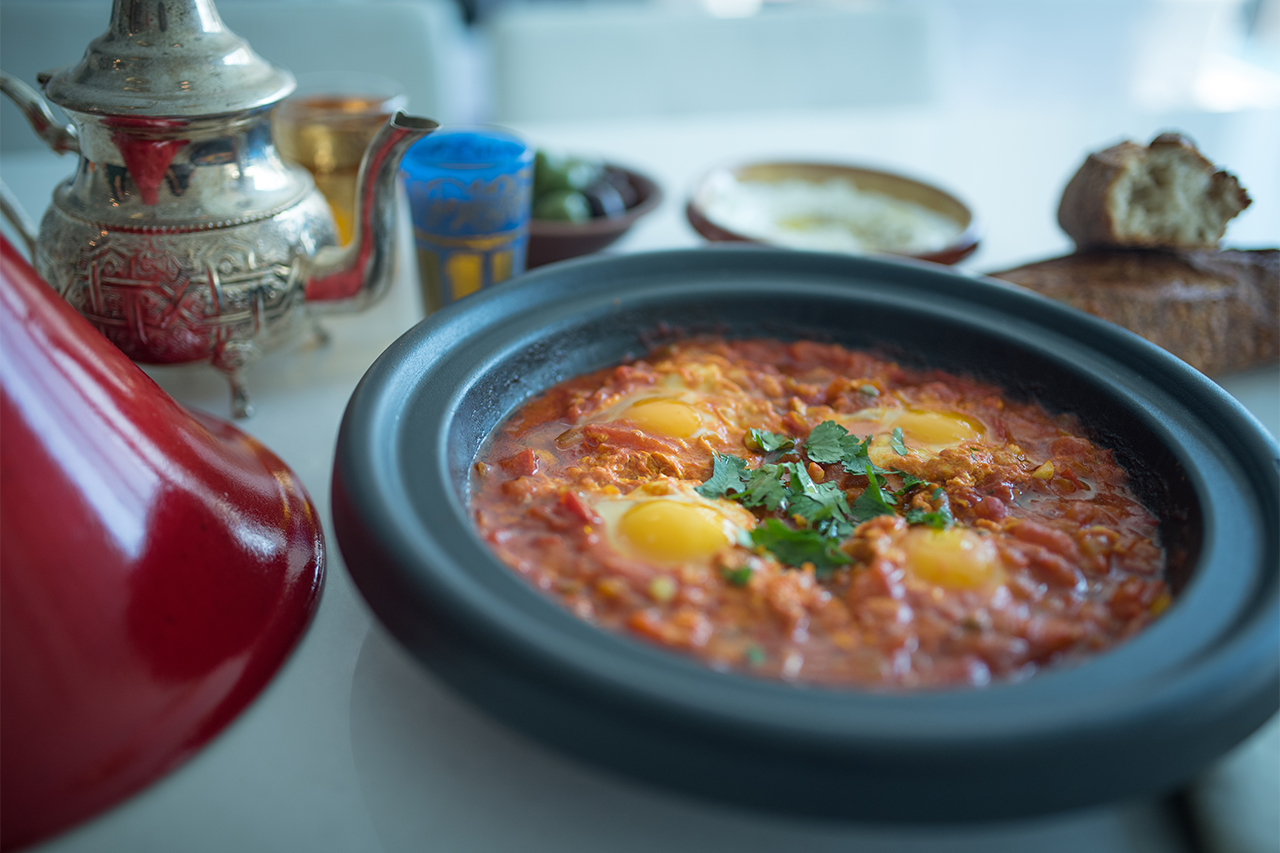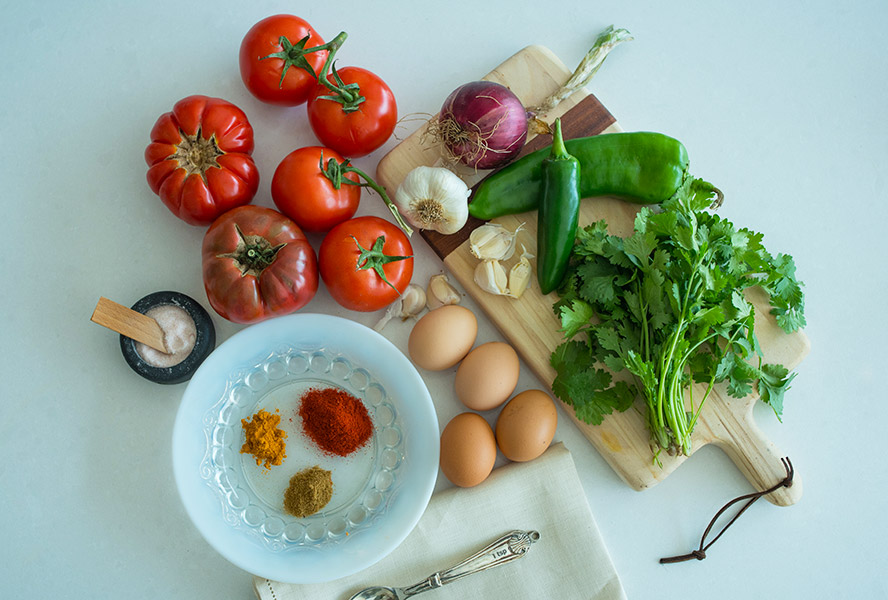
Ever since we were little, my twin sister has always been willing to cook, and I’ve always been willing to eat. No one was surprised when Annie Sibonney became a chef (and Food Network host), while I became a journalist who writes a lot about food. Though we pursued different interests and have even lived in separate countries over the years, sharing food together brings us back to our roots.
Growing up in a French Moroccan home, one of the most cherished food memories from our childhood is shakshuka, an impressive North African dish of eggs poached in a bubbling, fragrant stew of tomatoes and spices. This was the dish that got everyone out of bed in our house. It’s the kind of one-skillet meal that connects everyone around a table. It’s cutlery-optional. All you really need is a perfectly crusty loaf of bread for sopping up the sauce and the rich, runny egg yolks.
Shakshuka is wildly popular throughout the Middle East for breakfast or brunch but can stand on its own for any meal of the day. With its heady aromas of garlic, onion, paprika and cumin, it’s the kind of dish that gets people’s attention.
Eggs simmered in a spicy sauce is so simple and satisfying that it’s eaten in many iterations around the world—from Italian eggs in purgatory to huevos rancheros in Mexico and menemen in Turkey—all of these dishes involve a little magic as the resulting meal is so much more than the sum of its parts.
Some people add feta, olives, sweet bell peppers or even potatoes to shakshuka, but for purists it’s not necessary. Although a bowl of labneh—Lebanese strained yogurt—or olives on the side never hurt.
More than anything, it’s a dish that’s meant to be shared—the bigger and louder the gathering, the better. When it’s served, the shakshaka pan (Annie uses a cast-iron bottom of a traditional Moroccan tagine here) is placed in the centre of the table and the portion closest to you is yours. One of the only rules of sharing shakshuka: never dip your bread into someone else’s yolk, even if it’s your twin sister’s!
ingredients
directions

Heat a medium-sized heavy skillet, such as cast iron over medium heat. Add the olive oil and saute the onions until they have softened but not browned. Add the garlic, chili pepper and spices and stir for 1 minute, just enough for the kitchen to smell wonderfully aromatic.
Add the chopped tomatoes, water and salt to taste and increase the heat to high for about 2 minutes, stirring the mix so that the tomatoes start to break down into a sauce and comes to a bubbling simmer. Reduce heat to medium once more. Taste and adjust for seasoning.
The sauce should have a pungent flavour and a deep-red colour from the spices. Cook for an additional 15 minutes, stirring occasionally, being careful not to scorch the sauce. Add more water if necessary to maintain the consistency of a rustic pasta sauce.
With the back of a large spoon, make room for each egg in the pan by creating little wells in the sauce. Carefully crack the eggs one at a time into a small bowl, making sure to keep the yolks intact.
Gently tip in your eggs, one at a time into the sauce, making sure to leave enough space between them. Season each egg with a little more salt. Cook for roughly 13 minutes longer at a gentle simmer, rotating the pan constantly (do not stir!) to poach the eggs evenly in the sauce. The shakshuka is ready when the egg whites are set and cooked but the yolks are still bright, golden and velvety. Sprinkle the chopped cilantro and parsley over the finished dish with a liberal drizzle of olive oil.
For an authentic family-style meal, serve the shakshuka in its pan at the centre of the table and don’t forget plenty of good quality crusty bread to soak up the tomato sauce and to dip into the decadent yolks.
